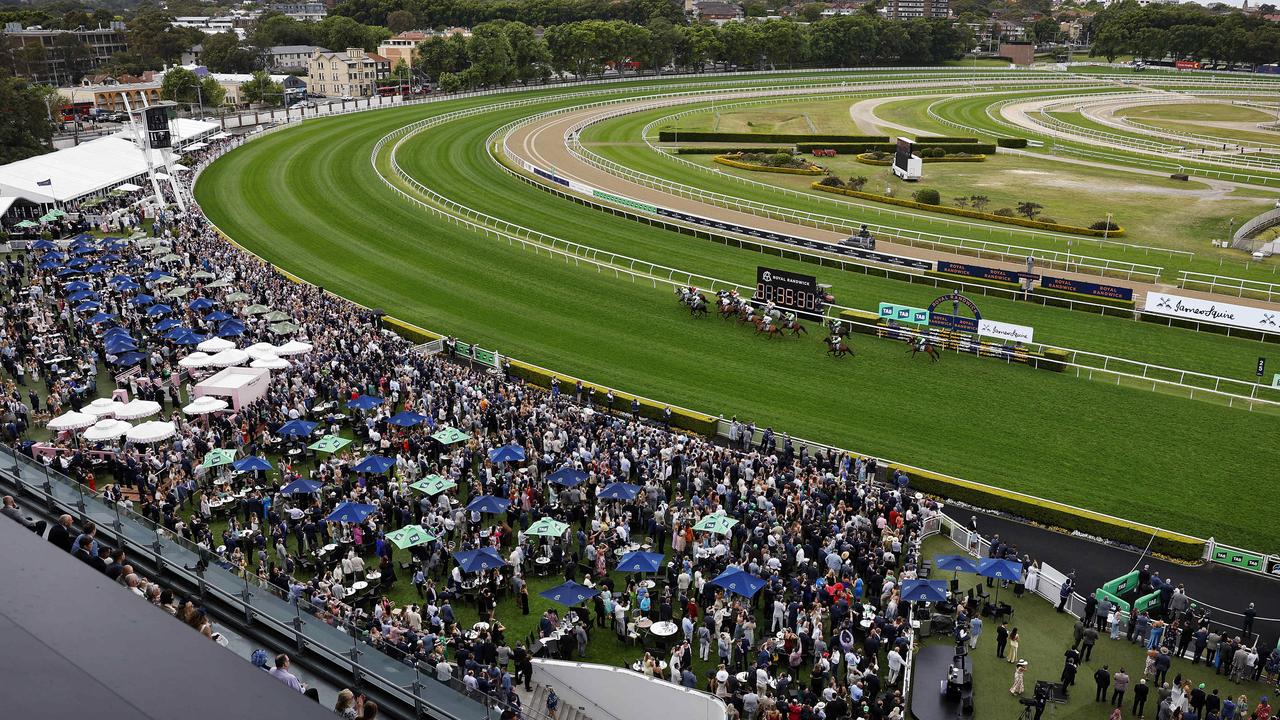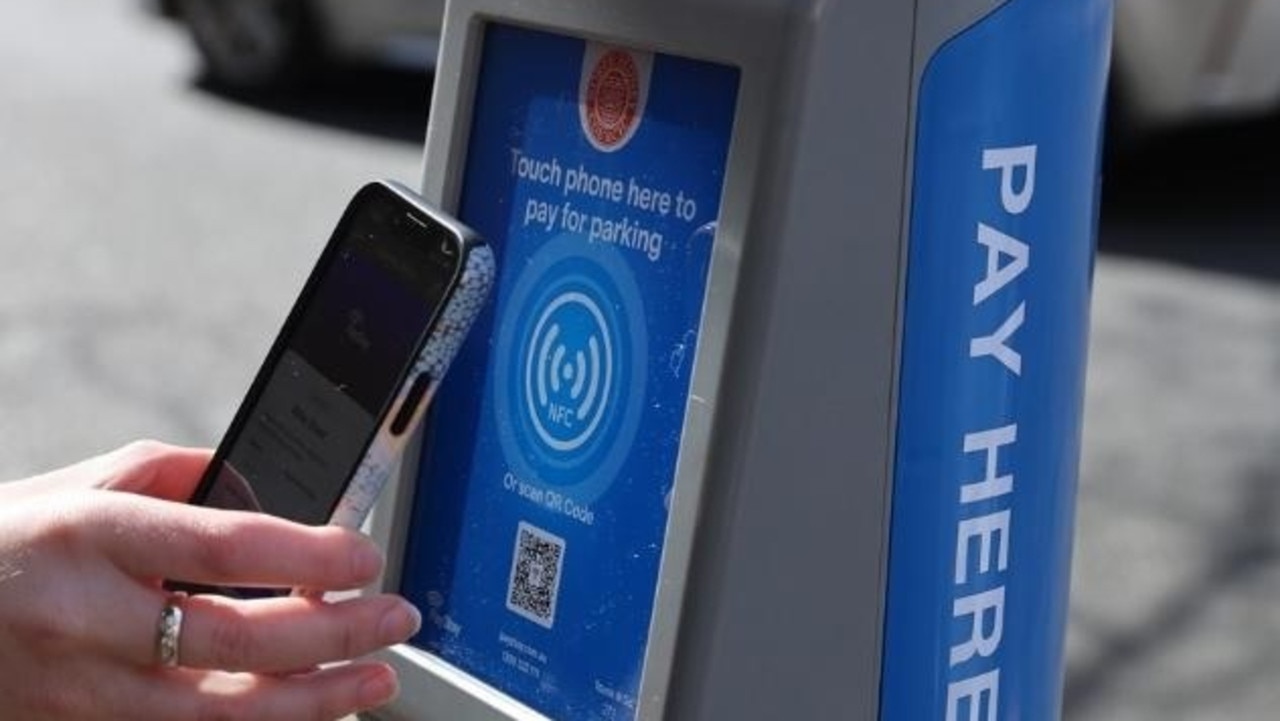NSW Covid-19: How vaccines cut decades from your risk of death
If you want to feel younger — simply get vaccinated. That’s the message from infectious disease expert Professor Peter Collignon. ONLINE SPECIAL: How the jab cuts your risk of catching and dying from Covid by age group.
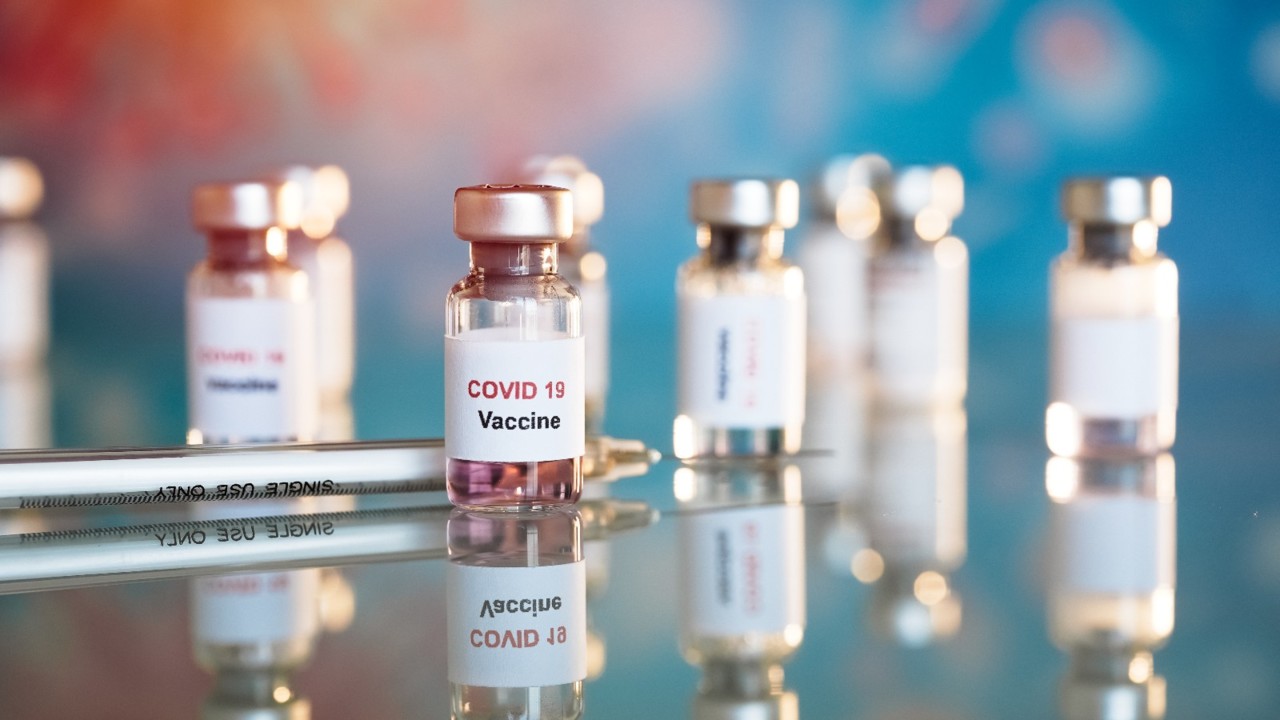
NSW
Don't miss out on the headlines from NSW. Followed categories will be added to My News.
If you want to feel younger — get vaccinated. That’s the message from infectious disease expert Professor Peter Collignon.
“You could say it makes you 30 years younger,” he says.
That’s because your chances of dying or going to hospital greatly increase with age – and since the Covid-19 vaccines slashes those risks, it means the jab effectively lowers your age risk profile.
The risk of dying from Covid-19 roughly doubles every seven years older a patient is. The other major risk factors are previous coronary disease, diabetes and obesity.
“Your death rate from Covid-19 goes up with age,” Dr Collignon, a Professor at the Australian National University, says.
“The vaccine is very effective at stopping you dying. Not 100 per cent. But if you are an 80-year-old, it drops your risk and you become a 50-year-old.
“And if you’re 50 years old, you become a 20-year-old. You’re suddenly 30 years younger as far as your risk of Covid is concerned.
“Hospitalisation rates are probably 20 years younger.”
Modelling from the Financial Times based on Public Health England data shows how the death rate falls from more than 1 per cent for an 85-year-old, down to 0.1 per cent.
In NSW the average fatality rate from Covid-19 has stayed steady at around one per cent of all reported cases, the same figure this year as it was last year, according to NSW Health data.
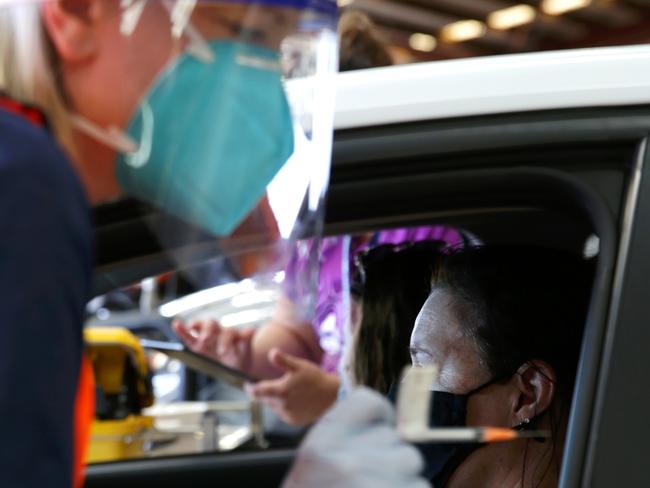
Last year 12 per cent of those infected with the virus ended up in hospital, and despite the more infectious nature of Delta, the figure is the same this year.
The most up to date analysis of the medical impact of the virus, from the Covid-19 Weekly Surveillance in NSW Epidemiological Week 32, shows 2.9 per cent of locally acquired cases in hospital were fully vaccinated and 11 per cent partially.
It was published on August 30, with figures covering the Delta outbreak from June 16 to August 14. They show 10 per cent of deaths in our hospitals are from fully vaccinated people, reflecting the fact the elderly are more at risk and are more likely to be fully vaccinated.
Overall, 54 healthcare workers had been diagnosed with the virus in this latest Delta outbreak, with 35 per cent of cases fully vaccinated and 30 per cent partially vaccinated.
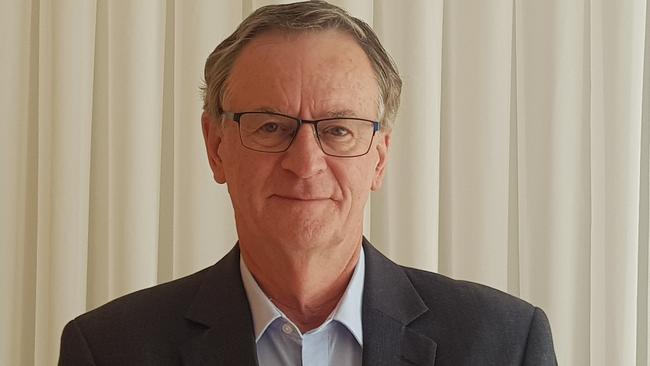
Of the 150 people in intensive care in NSW late last week, eight people had been fully vaccinated with two doses. Another 15 had received their first dose of a vaccine and 127 were not vaccinated.
By raw numbers, there’s more people aged in their 30s and 40s now in the state’s hospital beds — but as an age group they only have a 12 per cent chance of going to hospital when sick.
You’re far more likely to go to hospital if you are in your 80s, with a 56 per cent chance of being hospitalised. That compares to last year when the risk of an 80-year-old with Covid going to hospital was 45 per cent.
Dr Collignon said the death rate in Victoria was up as high as 4 per cent last year from the original Wuhan strain, but that could have been skewed by the nursing home outbreaks with older Australians.
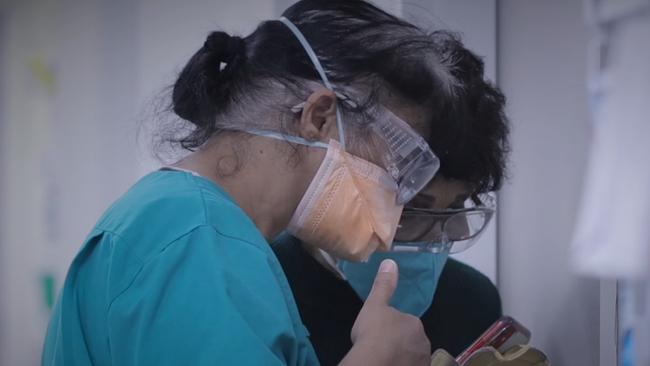
At the moment, in NSW, the fatality rate for those who catch Covid-19 is 17 per cent for people older than 80 years, four per cent for those in their 70s, one per cent for those in their 60s and below one per cent for everyone else.
“The vaccinated people are 10 per cent of deaths, it again shows how effective the vaccine is in decreasing your risk of hospitalisation and death,” he said.
Vaccination overall is estimated to provide a 95 to 98 per cent prevention against death.
But there are fears of waning effectiveness amid plans for booster shots. In a warning issued late last week, the US Centers for Disease Control said some vaccines may be losing their effectiveness in preventing hospitalisations, by falling to 75 per cent effectiveness. The agency said it was unsure whether the effectiveness of the vaccine itself had dropped over time, or if the variant was changing.
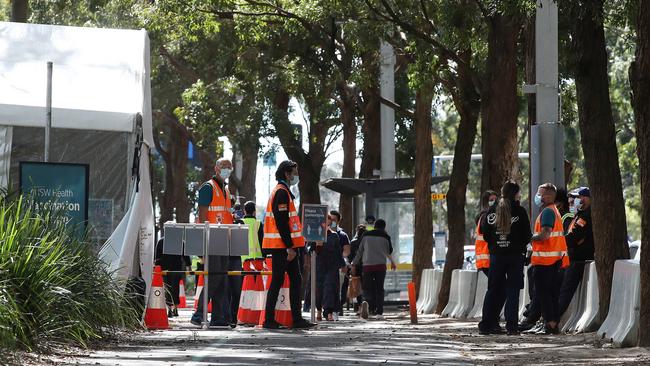
The Australian Catholic University’s senior lecturer Dr Roger Lord says while vaccination remains the most important public health directive to deal with the pandemic, we need to properly find out if vaccination actually induces an appropriate immune response – and therefore whether booster shots are required.
“Measurement of antibody titres and or T cell numbers following vaccination has not been considered to any real extent in Australia and is needed to determine what level and response is required for protection,” he said.
“The lack of such information also makes it hard to determine to what extent booster vaccination is necessary and in which part of the population.
“Vaccination itself does not equal immunisation.”
He points to new treatments that have been provisionally approved or are under evaluation by the Therapeutic Goods Administration.
“What happens if an individual fails to induce an appropriate immune response following vaccination or can’t be vaccinated because of a medical conditional or personal choice?” he said.
“Do these members of the community represent those who will succumb to the infection and perhaps become the statistical deaths represented by the modelling predictions? Not necessarily.”
Dr Lord said while little has been heard of new drug treatments approved by the TGA, including Remdesivir, Sotrovimad, Ronapreve and Molnupiravir, they will likely improve hospitalised patients chances of survival.
HOW AN EARLY SHOT HELPED LAUREN ESCAPE FAMILY’S VIRUS HELL
In her job as a speech pathologist Lauren Kelly, 24, had to get the Pfizer vaccination earlier this year — so when her family caught Covid-19, she was the lucky one.
No one else was fully vaccinated and, as a result, they were hit hard but Ms Kelly hardly noticed a thing. Even her boyfriend, who is 27, came down with the virus and was the sickest he’d ever been, unable to get out of bed.
Her father Greg caught the virus first.
Greg, who’d had his first shot of AstraZeneca, described it as “the worst illness I’ve come across in my 56 years”.
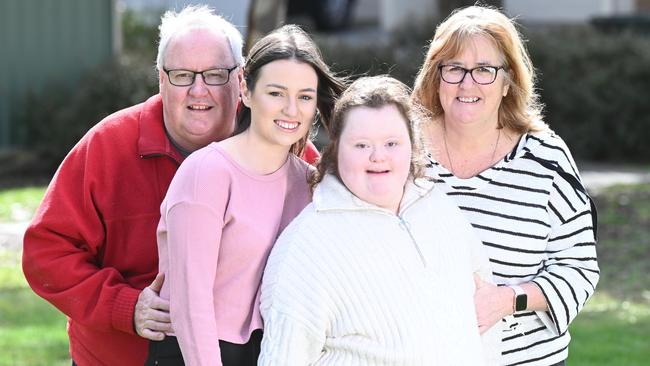
After several days, Covid-19 spread to Ms Kelly’s mum and Ms Kelly’s two sisters and boyfriend. One of her sisters, Sarah, has a disability and ended up in hospital.
“Mum was also getting very sick,” Ms Kelly said. “My boyfriend came and isolated with us so there were six of us under one roof and I was the only one with no symptoms, although I was diagnosed with it.
“I had a runny nose one day but that went away.
“My taste and smell were fine. My partner was bad, he couldn’t leave his bed for two or three days. They all struggled. They couldn’t hardly walk.
“I’m definitely an advocate for getting vaccinated.”
Originally published as NSW Covid-19: How vaccines cut decades from your risk of death




